These are some of the commonly asked questions about ENT conditions. From bothersome snoring to worrisome thyroid nodules, we’ll explore a range of conditions affecting many of us. Our aim is to provide some insights into these problems, answering common questions and presenting appropriate medical solutions.
Common ENT problems:
- Snoring and Sleep Apnea
- Sensitive Nose
- Sinusitis
- Tonsillitis
- Ear Infection
- Tinnitus
- Thyroid Nodules/Lumps
- Vertigo
- Hearing Loss
Sleep Apnea

Snoring is a common condition characterised by noisy breathing during sleep, caused by the vibration of tissues in the throat. Sleep Apnoea is a medical problem. They are two separate conditions. However, snoring is often a sign that there is underlying sleep apnoea.
What is sleep apnea?
Sleep apnea occurs when there is no airflow for 10 seconds or more.
Obstructive SleepApnoea (OSA) is when the person tries to breathe but there is no airflow for 10 seconds or more, due to airway obstruction.
Central Sleep Apnoea happens when there is no airflow because there is no attempt to breathe. This situation often happens due to a brain problem, causing a lack of effort to breathe. When the airflow decreases by 50% or more, doctors term it “hypopnea”. Obstructive sleep apnoea is measured by using the Apnoea-Hypopnea Index or AHI.
Sleep apnea Symptoms
It may be asymptomatic – many people do not know that they have OSA. In more severe cases, the patient will feel sleepy and tired in the daytime time in spite of having adequate sleep.
Commonly asked questions:
- Is snoring normal, or should I be concerned?
We call a person who snores but does not have OSA a “Simple Snorer.” Most insurance companies consider it a cosmetic problem and will not pay for treatment. The same applies to Medisave.
- How can I differentiate between ordinary snoring and sleep apnea?
There is only one definitive way – do a Sleep Study.
Sleep Apnea Treatment
The best treatments are
- Losing weight and sleeping with a CPAP machine
- Surgery to clear a blocked nasal passage
- Surgery to clear an obviously blocked airway e.g. large tonsils and adenoids
There are many types of surgery for OSA. These mainly involve moving the tongue forward so that does not fall backwards and obstruct the airway during sleep. There are also procedures to reduce the size of the tongue base. They usually work at first, but the results may not last because the soft tissue becomes lax as you get older.
A common problem seen in Orientals is retrognathia, also called a “weak chin”. This means airway will be narrow at the level of the tongue base.
Sensitive Nose

A sensitive nose, is often an allergic reaction to something in the air (e.g. dust). This is a big problem in Singapore.
The Issue at a Glance:
Causes of Sensitivity: allergy to Dust Mites, Pollens of Trees and Grasses, Fungi, Cockroach, cats and dogs.
Symptoms of a Sensitive Nose
- Sneezing fits
- Runny or congested nasal passages
- Itchy or watery eyes.
- Persistently blocked nose
Frequently Asked Questions:
- Can allergies cause a sensitive nose?
Yes, they can. However, the main question is what are you sensitive to? There is no blood or skin test for allergy to air-conditioning, temperature change, strong perfumes, or chemicals.
At least 40% of people who do a blood test for inhalant allergens will test negative, although they have all the symptoms of allergic rhinitis. Whether you test positive or negative for air-borne allergens, the medication is the same.
- How can I manage a sensitive nose on a daily basis?
Avoid triggers, and use anti-allergy medication or immunotherapy.
- Can a sensitive nose be a symptom of a more serious condition?
Sometimes there are underlying conditions like polyps, sinusitis, and deviated septum that make the symptoms worse.
Sinusitis

Sinusitis is a common condition in Singapore. Crowded environments encourage respiratory infections and increase the incidence of sinusitis. People commonly refer to allergic rhinitis as “sinus”. This is not accurate. Sinusitis is an infection, not an allergy.
What is Sinus?
A sinus is the hollow space within a facial bone. Sinusitis is when there is an infection in that space.
Sinusitis Symptoms
- Persistent nasal congestion.
- Facial pain or pressure, especially around the forehead and eyes.
- Thick nasal discharge.
- Reduced sense of smell or taste.
Frequently Asked Questions:
- Is sinusitis contagious?
Sinusitis may be bacterial or viral and both may be contagious
- What home remedies can help alleviate sinusitis symptoms?
Everyone who gets a flu will get acute sinusitis. This usually clears up when the flu clears up. There will be some who do not clear up and need to see an ENT surgeon.
- When should I see a doctor for sinusitis?
If symptoms persist for several weeks or if there is a complication, such as the infection spreading to the eye or brain.
Sinusitis Treatment:
The initial treatment is like for any other flu.
- Home Remedies: Steam inhalation, saline nasal irrigation, and adequate hydration.
- Medical Solutions:
- Decongestants to relieve congestion.
- Nasal corticosteroids for inflammation.
- Antibiotics when there is bacterial infection
Not every acute upper respiratory infection requires antibiotics. Your doctor will advise you on when it is appropriate.
Tonsillitis
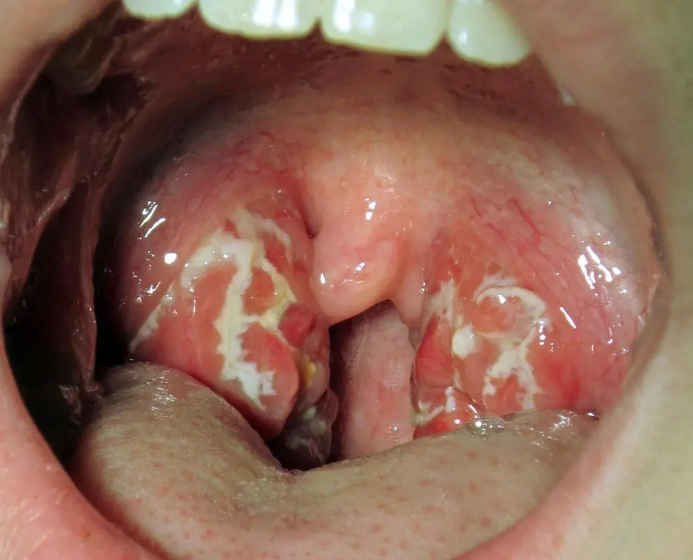
What is Tonsillitis?
Tonsillitis is an infection of the tonsils, which are two oval-shaped pads of tissue at the back of the throat. It’s a common condition, especially in children and young adults.
Tonsillitis Symptoms:
- Sore Throat, Fever and pus on the tonsils.
- Pain or difficulty swallowing, especially noticeable when eating or drinking.
Frequently Asked Questions:
- Is tonsillitis contagious?
Yes, if caused by a bacterial or viral infection, it can be contagious.
- How is tonsillitis diagnosed?
Usually through a physical examination and sometimes, additional lab tests
- Can adults get tonsillitis?
Yes.
Tonsillitis Treatment
When the tonsils become infected:
- Antibiotics: If bacterial in nature, a course of antibiotics can treat the infection.
- Pain Relief: Over-the-counter pain relievers can help manage pain and reduce fever.
- Rest and Hydration: Adequate rest and staying hydrated aid in recovery.
When the infection has settled:
Tonsillectomy to remove the tonsils. No tonsils = no tonsillitis again. This is only advised for people who get repeated bouts of tonsillitis.
Ear Infection
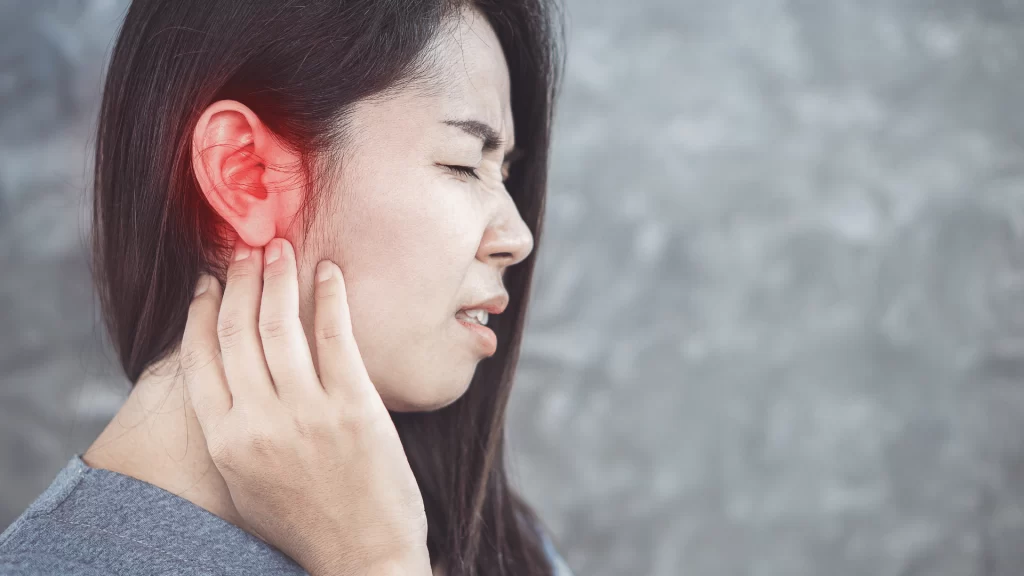
What is an ear infection?
People usually suspect they have an ear infection when they feel pain, blocked ears or have discharge from their ears.
Ear Infection Symptoms:
External ear infections rarely cause fever. Middle ear infections, especially in children, may cause fever.
Here is a common situation: a child gets ear pain. The parents bring the child to the doctor and all the doctor can see is a large piece of hard wax.
The easiest and most painless way to remove the wax is to soften it with olive oil for a few days, then return for the wax to be flushed out with water. Meanwhile, the doctor starts the child on antibiotics and pain killers.
Many parents cannot wait a few days. They get all neurotic and must know right away whether the pain is from a middle or outer ear infection.
The only way to satisfy them is to remove the wax immediately so that it is possible to examine the ear drum. To do this the child has to be put under general anaesthesia to remove the wax. If there is a middle ear infection the child is then given antibiotics. In this case, the child might as well just take the antibiotics first, soften the wax over a few days and remove the wax by simply flushing it with water. It only takes about 2 minutes for each ear.
Parental anxiety and impatience sometimes cause more harm than good.
Frequently Asked Questions
- What causes ear infections?
The infection can be in the external or middle ear. An external ear infection involves the ear canal, external to the ear drum. A middle ear infection involves the space behind the ear drum. Ear wax, bacteria, or fungi typically cause an outer ear infection by infecting the skin of the ear canal. A middle ear infection usually results from an upper respiratory infection e.g. sinusitis or flu.
- Can adults get ear infections?
Both children and adults can develop ear infections. However, children are more likely to experience middle ear infections, while adults are slightly more prone to external ear infections.
Ear infection treatment
The most important treatment for Infections of the external ear canal is to clean it and apply the necessary creams and ear drops.
Ear drops cannot reach infections of the middle ear because the eardrum prevents ear drops from going in. Unless, of course, there is a hole in the eardrum, which will allow ear drops to go through into the middle ear
If there is an infection of the middle ear, behind an intact ear drum, it needs to be treated with oral antibiotics.
Tinnitus
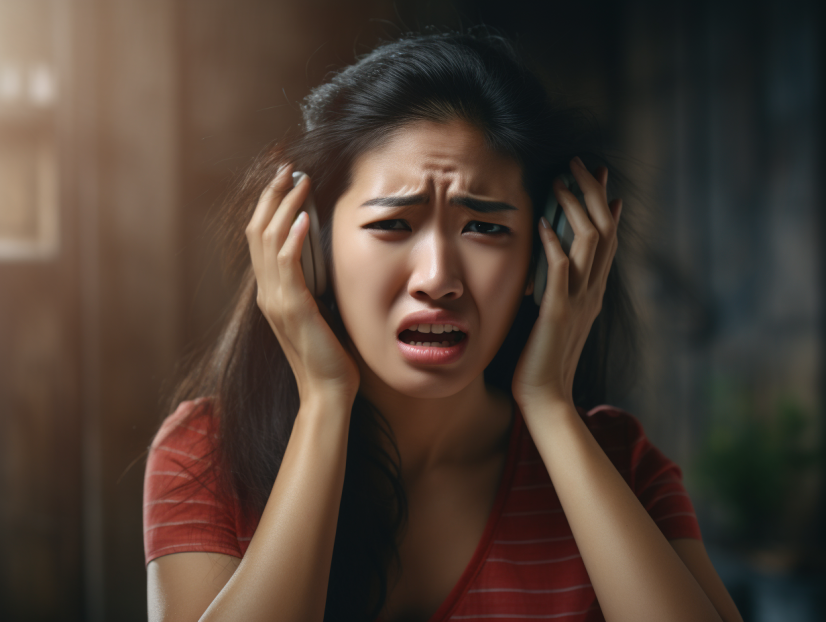
What is Tinnitus?
Tinnitus refers to the perception of noise, such as ringing or buzzing, in the ears when no external sound is present.
Tinnitus can be temporary or chronic and can affect one or both ears. It can significantly impact a person’s quality of life and daily functioning.
Tinnitus Symptoms:
- Ringing, buzzing, roaring, clicking, or hissing sounds in the ears.
- Sufferers of the condition have given a wide range of descriptions. The tinnitus may vary in pitch, volume and character.
- Tinnitus is more obvious in a quiet environment.
Frequently Asked Questions:
- What causes tinnitus?
The exact mechanism of tinnitus is not known. Researchers have done much work on it and their findings are usually too complicated for the average person to understand. Damage to the hair cells of the inner ear is one of the proven causes of tinnitus.
- Is tinnitus permanent?
No. We have many patients who tell us that their tinnitus disappeared after some time, or no longer bothers them.
- Can tinnitus be cured?
There is no medication that cures chronic tinnitus, but there are management strategies that can help reduce its impact and improve daily life.
Tinnitus treatment
Hearing Aids
For those with hearing loss, hearing aids can often help reduce the perception of tinnitus because the surrounding noise is amplified and they cannot hear the tinnitus.
Masking Devices:
There are devices that produce a custom-made noise to reduce the perception of tinnitus. There is a company that produces a distorted sounding version of Mozart’s Air on a G-String that masks tinnitus.
Counseling and Therapy
Techniques like cognitive behavioral therapy (CBT) can help manage the emotional aspects of tinnitus.
Medications
There is no known medication for tinnitus.
Thyroid Nodules
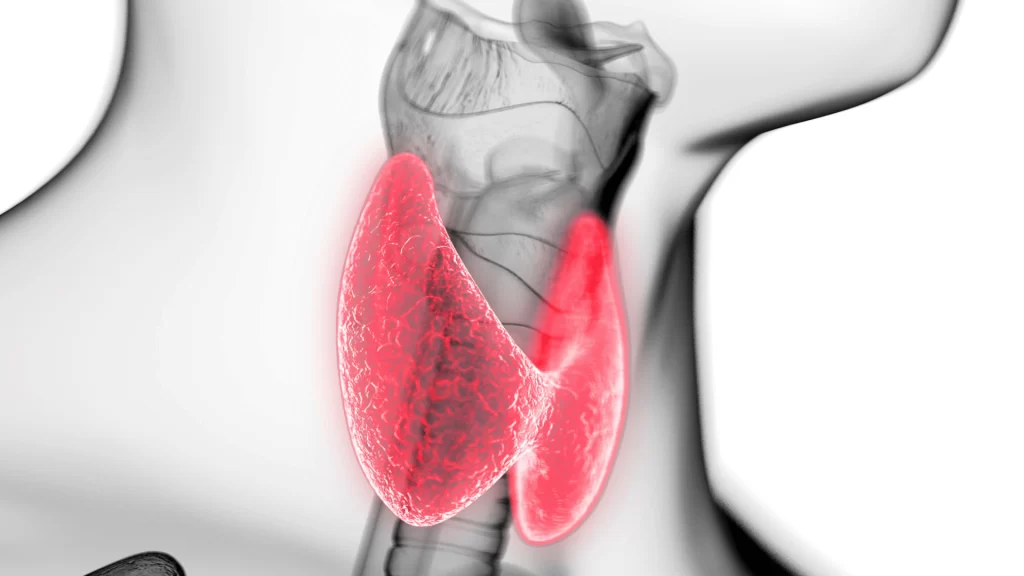
What are Thyroid Nodules?
Thyroid nodules are abnormal growths within the thyroid gland, which is located in the neck. These nodules may be solid or fluid-filled cysts. While they’re often benign (non-cancerous), further evaluation is necessary to rule out malignancy.
Thyroid nodules are prevalent, and many people don’t know they have small nodules because they are not large enough to be visible yet. The ultrasound scanner detects small thyroid nodules before they become visible. This is why doctors are picking up more thyroid nodules and at an earlier stage.
Common Symptoms:
- Presence of a lump or swelling in the neck that moves with swallowing.
- When the nodule is huge, it can compress the windpipe and cause difficulty in breathing. It rarely compresses the esophagus enough to cause any difficulty in swallowing.
- Changes in the voice or persistent hoarseness are rare and indicate cancer.
- Thyroid nodules are usually painless
Frequently Asked Questions:
- Are thyroid nodules common?
Yes, thyroid nodules are prevalent, especially in older individuals and women.
- What causes thyroid nodules?
The exact cause is often unknown, age-related degeneration, iodine deficiency, inflammation, or genetic predisposition can contribute.
- Do all thyroid nodules need treatment?
No, not all nodules require treatment. There are scoring systems, based on ultrasound and needle biopsy findings, that estimate what the risk of cancer is. Management depends on the risk and what other problems the nodules cause.
Medical Solutions:
- Thyroid Function Tests: Blood tests to measure hormone levels and detect any abnormalities.
- Ultrasound: To evaluate the size, location, and characteristics of the nodules.
- Fine-Needle Aspiration (FNA) Biopsy: A procedure to obtain a tissue sample for further analysis, determining if the nodule is benign or cancerous.
- Regular check-ups and repeat aspirations for nodules that are initially assessed to be non-cancerous and therefore not removed. These nodules are followed up to make sure that there is no cancerous change.
Vertigo

What is Vertigo?
Medical professionals do not agree on the exact definition of vertigo. The easiest description is to think of it as the sensation of yourself spinning or your surroundings spinning around you.
Vertigo Symptoms:
- A spinning sensation (NOT a feeling of imbalance, that is another condition)
- This may make you nauseous and feel like vomiting
Frequently Asked Questions:
- Is vertigo a serious condition?
Vertigo itself is not a serious condition, but it can indicate an underlying problem that needs attention.
- What causes vertigo?
Inner ear problems or brain problems. The so-called peripheral or central causes.
- Can vertigo be treated?
Yes, treatments range from simple head exercises to medication, depending on the cause.
Vertigo treatment
The treatment depends on the cause. A common situation we encounter is a patient who comes in and says that he/she has vertigo and their Chinese Sinseh, friend or family doctor tells them that it is due to “water imbalance in the ear”.
If someone tells you this, ask them how they measure the amount of water in the ear. They will not be able to tell and instead tell you the specialist can. There is no test or x-ray that measures the amount of water in the inner ear. It is all nonsense. This is a big cause of patients coming with unrealistic expectations.
You will have seen all kinds of maneuvers, e.g. Vestibular Rehabilitation Therapy (VRT) on YouTube, that claim to cure vertigo. These are very effective, but cases that can be treated with these maneuvers are a minority.
The majority of people who are dizzy will have no abnormality found on the ear tests and brain scans. Many cases of dizziness are of unknown cause Dizziness and vertigo can be part of a stroke but a stroke will have other obvious signs.
There is no such thing as someone who is permanently vertiginous, spins 24/7 for months and have no other neurological findings. The problem is psychological.
Hearing Loss
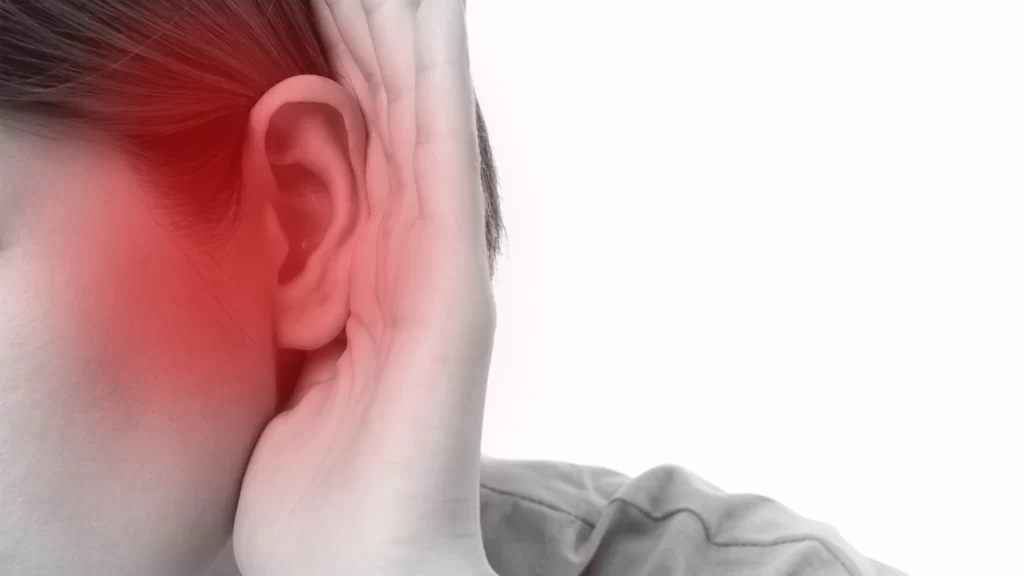
Hearing loss in one ear
Hearing loss refers to a partial or total inability to hear sounds. It can happen in one or both ears and might be sudden or gradual, affecting people of all ages.
Common Symptoms:
- Difficulty understanding speech, especially in noisy environments.
- Needing higher volumes on electronic devices.
- Withdrawal from conversations or social settings.
Frequently Asked Questions:
- What causes hearing loss?
Causes can include age, exposure to loud noises, certain medications, infections, or genetic factors.
- Can hearing loss be prevented?
Yes, By protecting ears from loud noises and medications that cause deafness
- How is hearing loss diagnosed?
Through hearing tests conducted by a doctor or audiologist.
Hearing loss treatment
- Hearing Aids: Devices to amplify sounds and improve hearing.
- Cochlear Implants: For severe hearing loss, surgically implanted devices that replace the damaged inner ear.
- Assistive Listening Devices (ALDs): Devices like FM systems or Bluetooth-enabled hearing aids to improve hearing in specific situations.
Addressing hearing loss early is crucial in young children, otherwise their development is impaired.
ENT Specialist Singapore
It is useful to understand some common ENT problems. It will help you prepare for your visit so that you can get maximum benefit from your visit. It will also prevent you from having unrealistic expectations and getting disappointed when you come. If you’re unsure of what to do, drop us a visit and have our specialist take a look. Sometimes, it is better to leave the professional work to the professionals.

Cool, I’ve been looking for this one for a long time